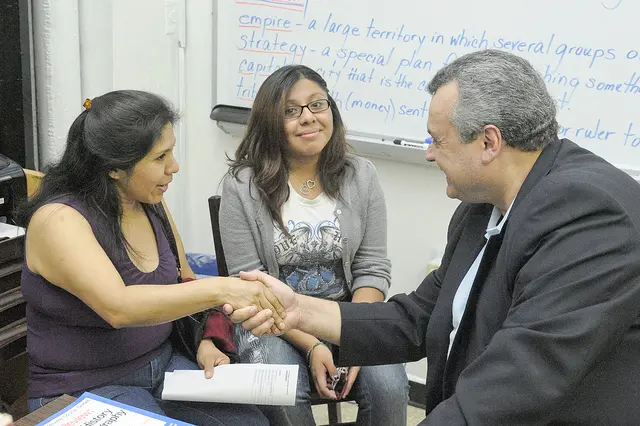By Min-Ling Li
Min-Ling is IEA’s Apprenticeship Program Coordinator. She joined IEA after teaching high school mathematics in Los Angeles. Her dedication to supporting high-potential students is rooted in her own experiences as a student who struggled to find outlets that nurtured her intellectual and social dispositions.

Amelia is a 10th grader who attends a small private school in Northern California. She enjoys singing and dancing, as well as reading about the universe and diving into the intricacies of supernovae. Amelia is self-motivated but often finds that her school and the courses offered do not satisfy her curiosity in the arts, math, and sciences. The content to learn within her school is often shallow, and completing assignments of knowledge-gathering is baffling to her, as she can find the answer with taps on a keyboard and Wikipedia. She despises memorization. Amelia is respectful. With that said, she follows her enthusiastic and inspiring teachers as they “cover material” which she masters quickly. Amelia is an example of a gifted child within “American schools [that] pledge to educate everyone and expose students to a wide variety of topics” (Davidson, 2004). Amelia’s needs are oftentimes overlooked.
Providing safe and nurturing learning environments for gifted students is often difficult when the student seeks services within educational spaces that are not aware of the needs of gifted youngsters. As the coordinator for a gifted program and a teacher of general education students, I have gained knowledge and experience from my interactions with teenagers. Being an advocate is pivotal in my responsibility to offer the best learning environment for gifted students.
Understanding the needs of a gifted teenager
Advocating for a gifted teenager will require one to look at how we evaluate a valuable learning opportunity. “A gifted, creative child needs [his or her] creativity honed and trained” (Davidson, 2004). Gifted and creative students need options to dive deeply in content and insights from experts to develop passion. They often feel pressures to achieve or not achieve based on structures in place to support their development. As a supporter of a teenager, being open and flexible to his or her passions is vital. Asking questions that qualitatively investigate learning experiences rather than quantitatively evaluating success will motivate students to find their passion. It’s nice to feel you have room to learn and then decide if you would like to continue with the path.
Clear communication of needs
To communicate as an advocate, one must look to the student. Seeking inherently higher intellectual simulations and communicating the needs socially and emotionally of the teen will be a critical component of being an advocate. Listening and observing will be the greatest part to communicating what teenagers may need for their learning. “The construct of meaningfulness, challenge, choice, interest, and enjoyment, have been shown to be central to learning” (Gentry & Springer, 2002). While keeping this criterion in mind, asking observational questions of educators in the youngster’s life will help identify his or her needs. Oftentimes having a mentor to help guide the teenager will enable the needed growth of a gifted student. Having a content expert develop a professional relationship with the student and give constructive criticism will give a youngster real-world working skills.
Be willing to compromise
As an advocate, one will need to work with various people. Finding the best fit for a gifted teenager will require discussion and planning with the youngster, mentor, educators, and family. When there are many vested interests and experts working to find or provide the best opportunities, it might not fit the vision of everyone, but keep the youngster and his or her need for enriching experiences in mind. Ellen Winner writes about gifted children and their “rage to master,” in other words, their willingness to do what they are passionate about for hours each day until they find their level of mastery (Whalen, 2000). Sometimes the path of a gifted teenager is unconventional, but keeping the youngster’s needs in mind will help construct and execute the best fit.
Reflection
Continuous consideration and assessment of learning experiences will identify the strongest approaches to nurturing a youngster. Advocating for a teenager will require a subjective reflection of the teenager’s desires and needs as he or she nears adulthood, “looking at gifted children, first and foremost, as the unique beings that they are rather than the eminent adults the might someday become” (Delisle, 2014).
References:
Davidson Institute for Talent Development. Advocating for Exceptionally Gifted Young People: A Guidebook (2011). Web. 25 Sept. 2014.
Whalen, Sam. “Sustaining ‘The Rage to Master’: A Conversation with Ellen Winner.” The Journal of Secondary Gifted Education, Spring 2000.
Gentry, Marcia, and Penny Mork Springer. “Secondary Student Perceptions of Their Class Activities Regarding Meaningfulness, Challenge, Choice, and Appeal: An Initial Validation Study.” The Journal of Secondary Gifted Education, Summer 2002.
Davidson, Jan, Bob Davidson, and Laura Vanderkam. Genius Denied: How to Stop Wasting our Brightest Young Minds. New York: Simon & Schuster, 2004.
Delisle, James R. Dumbing Down America: The War On Our Nation’s Brightest Young Minds (And What We Can Do To Fight Back. Waco: Prufrock Press, 2014.
Want more information about gifted children? Sign up for our e-newsletter to get articles and resources pertaining to gifted youth in your inbox.

This post is part of the Hoagies’ Gifted Education Page October Blog Hop on Gifted Advocacy. Check out all of the other great blogs participating in Hoagies’ October Blog Hop here.
Photo credit: Innovation_School via photopin cc
